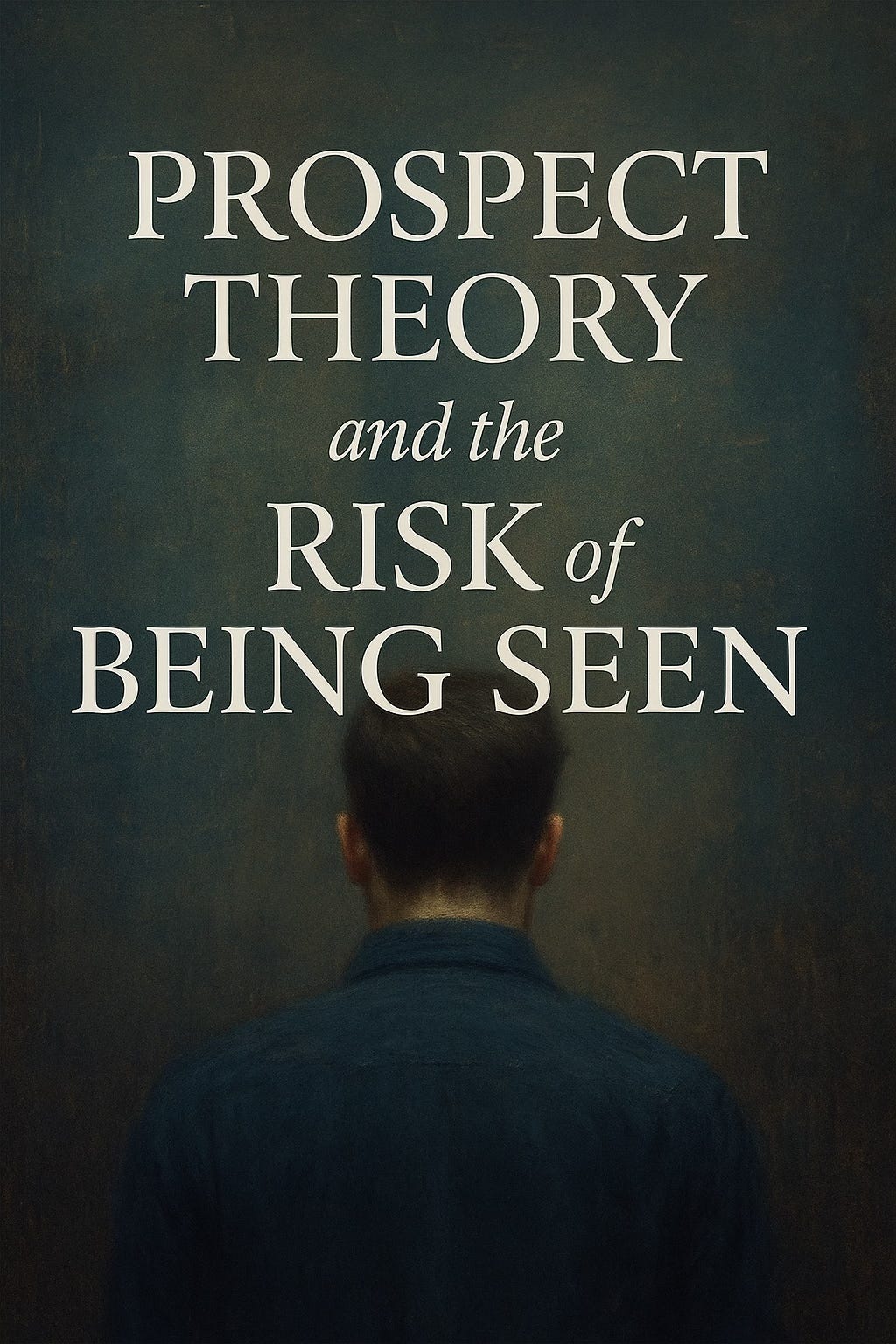Chapter 4: Prospect Theory and the Risk of Being Seen
From the THX Series Hub - Behind the Mask: The Invisible Labor of Neurodivergent Survival
If you've ever wondered why so many neurodivergent people hold back their brilliance, their clarity, their insights—it isn't because they doubt themselves.
It's because they've learned that the risk of being seen is often greater than the potential reward.
Prospect Theory, a foundational concept in behavioral economics, tells us that people fear loss more than they value equivalent gain. Loss feels bigger. It shapes decisions, behaviors, and survival strategies.
For neurodivergent individuals navigating fragile systems, every act of authenticity carries a loss calculation:
Will speaking up cost me relational trust?
Will offering clarity too soon cost me belonging?
Will moving too fast cost me opportunity or safety?
Will revealing my real needs cost me dignity or credibility?
When the system has taught you that being fully yourself threatens your survival, you learn to mask—not because you want to, but because the emotional math demands it.
How Prospect Theory Shows Up in Neurodivergent Masking
Loss of safety feels riskier than the gain of honesty.
Loss of opportunity feels riskier than the gain of self-expression.
Loss of credibility feels riskier than the gain of visibility.
Loss of relational stability feels riskier than the gain of authentic connection.
Even when a system claims to reward "innovation," "authenticity," or "diversity," the underlying emotional signals often warn otherwise.
Masking becomes not just a habit—but an emotional insurance policy.
THX Frameworks Behind the Risk Calculation
Prospect Theory — Fear of loss dominates the decision matrix.
12 Utilities — Systems offer inconsistent Security, Clarity, and Availability.
PERMAH — Emotional flourishing is too risky to pursue openly.
Admiration Equation — Positive micro-moments are rare; unexpected negative micro-moments (betrayal, rejection) dominate memory and behavior.
Micro-Moments — Each moment of hesitation, suppression, or adaptation is an accumulated emotional cost.
The Emotional Landscape
Chronic anxiety about overexposure
Exhaustion from constant emotional risk assessment
Mistrust of praise or recognition (because it often precedes loss)
Hyper-vigilance toward shifts in group emotion or power dynamics
Loss shapes not just strategy—but identity.
Final Thought
Masking isn't about self-doubt. It’s about emotional survival.
When the cost of being seen feels bigger than the gain of being recognized, brilliance stays hidden—not out of fear of failure, but out of fear of loss.
Understanding Prospect Theory isn’t just about economics.
It’s about compassion.
Because until systems offer real emotional safety, masking will always be the rational choice for those who have the most to lose.
Next - Chapter 5: The Invisible Effort Behind Emotional Safety




